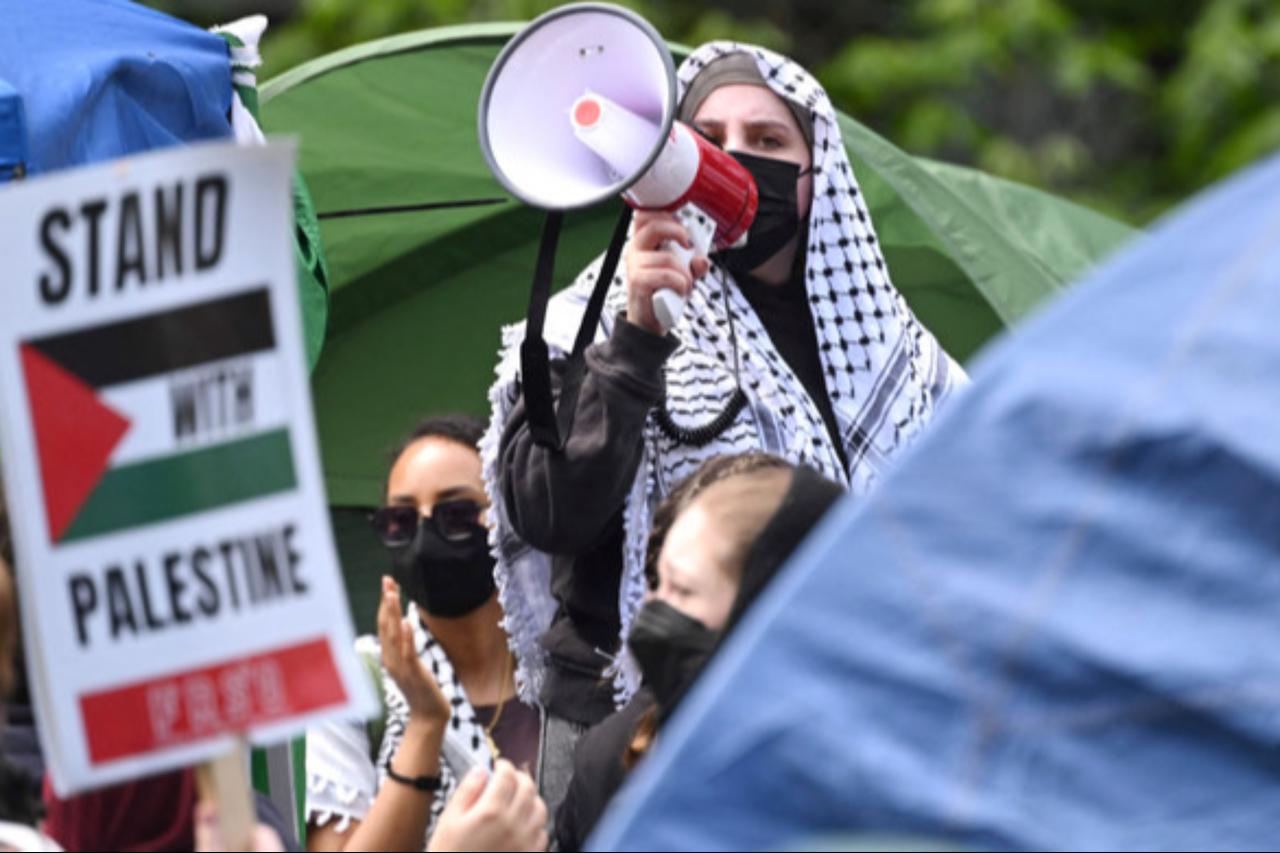
U.S. universities across several states used artificial intelligence tools, private surveillance firms, and internal monitoring systems to track pro-Palestine student protests, newly released documents obtained by U.S. investigative outlet The Intercept show. This has raised broad concerns about free expression and the growing role of corporate partners in campus security operations.
The website reported that at the University of Houston, tensions with the administration were already high before students set up their encampment, with incidents such as pro-Palestine chalk messages putting university leaders on high alert.
The report added that what students did not know at the time was that the University of Houston had contracted with Dataminr, an artificial intelligence company with a troubling record on constitutional rights, to collect open-source intelligence on the pro-Palestine student movement using its AI tool First Alert.
The report noted that this is the first detailed account of how a U.S. university has used AI technology to monitor its students.
It serves as one example of how public universities work with private-sector partners to track student protests, revealing how corporate involvement in higher education can be leveraged against students' freedom of expression.
It added that this is the latest installment in a series of investigations into the harsh surveillance practices universities across the country employed to suppress pro-Palestine encampments and student protests in 2024.
More than 20,000 pages of documents—covering communications from April and May 2024 and obtained by The Intercept through public-records requests—reveal a systematic pattern of surveillance by U.S. universities in response to student dissent.
Public universities in California also tapped emergency-response funds intended for natural disasters to suppress protests.
In Ohio and South Carolina, universities received briefings from intelligence-sharing fusion centers. At the University of Connecticut, student participation in a protest angered administrators who worried about how a nearby military weapons manufacturer might react.
The investigation series traces how universities, which have long presented themselves as safe havens for free expression, have deepened the existing imbalance between billion-dollar institutions and the peaceful student movement by cracking down on the latter.
Rory Mir, associate director of community organizing at the Electronic Frontier Foundation, told The Intercept that universities have a duty of care toward students and that surveillance systems violate that responsibility by creating unsafe conditions, chilling free expression, and eroding trust on campus.
The Intercept previously reported that the Los Angeles Police Department used Dataminr’s First Alert system to monitor pro-Palestine demonstrations. First Alert is among several Dataminr services that provide large-scale intelligence gathering and threat detection.
Nathan Wessler, deputy director of the Speech, Privacy, and Technology Project at the American Civil Liberties Union, said it is troubling to see university officials comb through students’ social media, and even more alarming when institutions rely on algorithmic tools to analyze online speech on a mass scale.
The report said the University of Houston’s use of Dataminr was only one example of the open-source intelligence tactics deployed by universities in spring 2024.
Documents show administrators using screenshots from Instagram and campus surveillance cameras as part of a growing intelligence network that pushed aside constitutionally protected expression under the banner of “social listening.”
It added that university communications staff often had to conduct the manual work of monitoring activists’ social media accounts to anticipate planned demonstrations.
In some cases, university officials gathered the intelligence themselves.
One communications thread in the documents indicates that, at one point, officials at the University of Connecticut were monitoring students as they slept in the campus encampment.
In April of that year, a University of Connecticut official wrote to other administrators: "They're just starting to wake up. It's still very quiet. Only two police cars are nearby."
Amid the largest wave of student protests in decades, U.S. universities used open-source intelligence tools to monitor pro-Palestine activism, tracking whether students planned to negotiate and, ultimately, how they intended to dismantle their encampments.
Some students who spoke to The Intercept said that, as a result of the surveillance they faced during the protests, they strengthened their digital security, using inexpensive burner phones and limiting communication about potential demonstrations to protect their messaging channels.